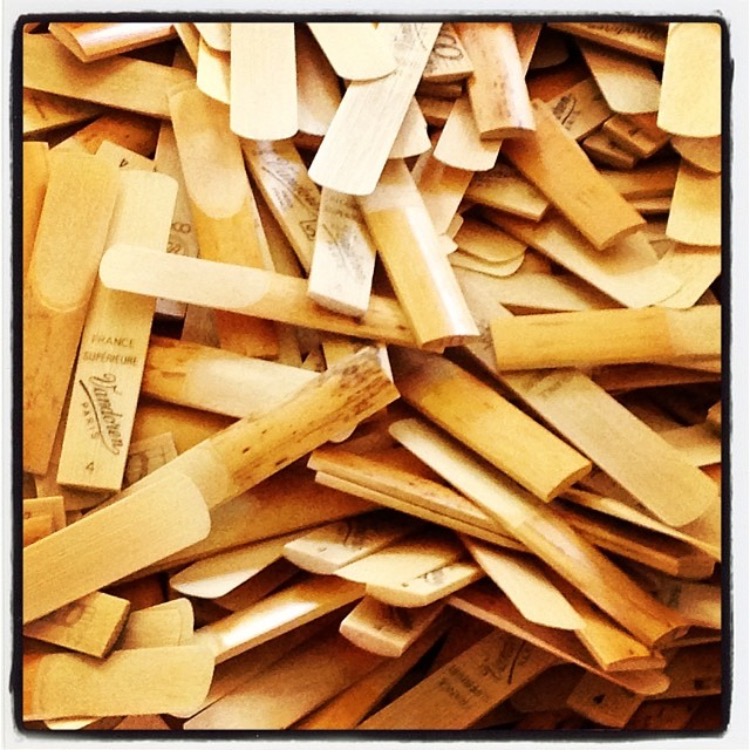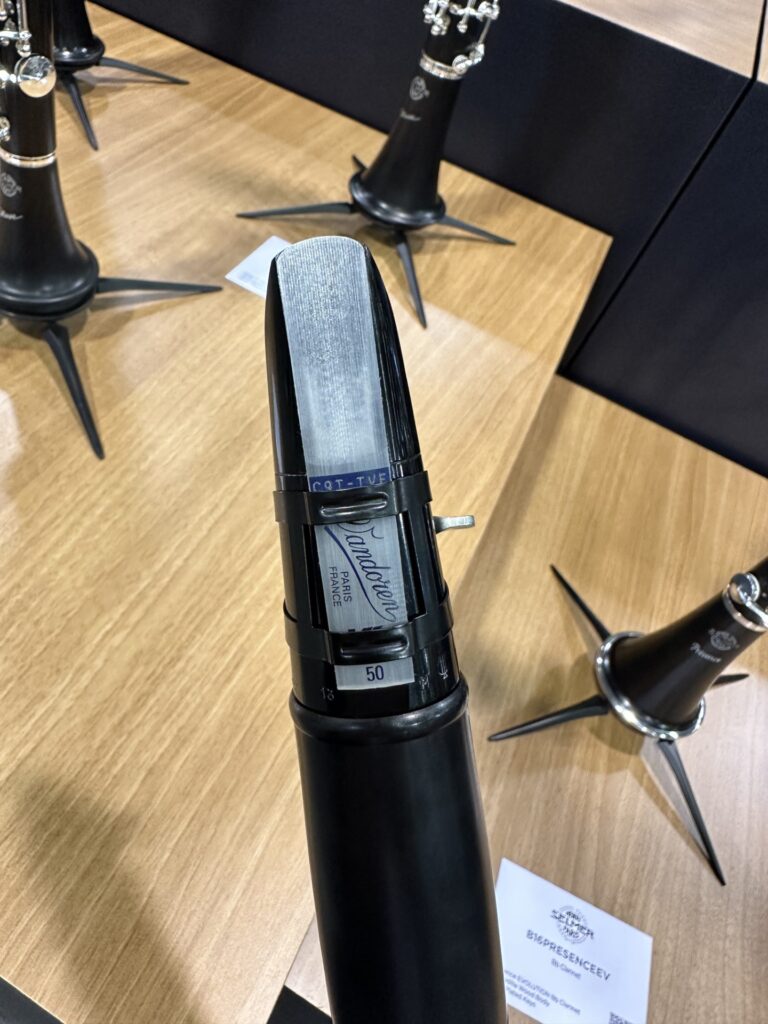Cane vs. Synthetic Clarinet Reeds – What’s the Difference?
Let’s talk about one of the most frequently discussed clarinet topics – reeds.
Reeds are an essential component to producing a sound on the clarinet, and there are many different brands, cuts, and varieties available in today’s market.
Today, synthetic reeds are becoming more and more popular among all levels of players, from beginners to professionals. Here’s my complete guide to everything you need to know:
Click here to skip to my opinions on synthetic reeds.
What are cane reeds?
Cane reeds are made from the Arundo donax cane, which can be found in different regions around the world. Many reed companies get their cane from the Mediterranean basin. (Fun fact: both “arundo” and “donax” are the old Latin and old Greek words for cane.)
Historically, clarinetists would typically use the cane to make their own reeds. Around the turn of the 20th century, companies like Vandoren began manufacturing reeds for commercial sale, revolutionizing the reed market.
What are synthetic reeds?
Synthetic reeds are made of composite materials such as polypropylene, polymer fibers, Kevlar fibers, and other materials. (Note: For the purposes of this article, I will refer to non-cane reeds as synthetic, but there are several different materials which are used in their production.) Synthetic reeds began emerging in the late 20th century and offer a longer-lasting alternative to cane reeds. Since their emergence, the science and technology used to create these reeds has continued to improve and become more advanced.
Now that you know the difference between cane and synthetic reeds, which one is right for you?
The short answer is that it depends on what you’re looking for. Read on for benefits and disadvantages to both cane and synthetic reeds:
Benefits of using cane reeds:
- Personalization. You can adjust reeds using sandpaper, reed knives, and other methods to suit your individual needs. Reed adjustment allows the player to match each reed to their individual setup and performance situations.
- More colorful tone. Many clarinetists believe that cane reeds provide a greater depth to their sound that can’t be captured by synthetic reeds. This is a matter of personal taste, and experiences and opinions vary from musician to musician.
- More reed options. Clarinetists who play cane reeds will most likely carry a larger selection of cane reeds (due to cost and personalization), which will present more reed choices.
Disadvantages of using cane reeds:
- Break-in period. Cane reeds should be broken in to ensure that they play consistently over a longer period of time. The break-in period allows the cane to adjust to your external environment, playing, and other factors. Additionally, you must allow time for wetting and drying cane reeds for optimal performance.
- Longevity. Cane reeds tend to wear out, warp, or lose resistance in a few weeks, depending on play time and other factors.
Cane responds to environmental factors such as temperature, humidity, and altitude. This means that your reeds will play differently in different environments as they respond to their external conditions.
Benefits of using synthetic reeds:
- Out-of-the-box consistency. As organic materials, cane reeds will have variance between reeds. Just as no two snowflakes are identical, neither are any two cane reeds. Synthetic reeds are machine-made of composite material, making it easier to achieve consistency between reeds without any adjustment on the player’s part.
- Playing in different environments. Both cane and synthetic reeds can be played in any environment, but if you travel frequently between different climates or altitudes, you might find more consistency with synthetics.
- Longevity. Synthetic reeds can last for a few months per reed, making their playing life longer than cane.
Disadvantages of using synthetic reeds:
- Cost per reed. Since a synthetic reed last much longer than a cane reed, this is reflected in the price. A single synthetic reed can cost upwards of $30USD or more, whereas a box of 10 cane reeds is around $30USD. (Note that cost will depend on your region)
- Personalization. Whereas cane reeds can be adjusted by sandpaper, reed knives, and other methods, synthetic reeds don’t offer this same level of customization.
The most important question you’re probably wondering – Which reed sounds better?
The short answer is that there is no definitive answer. Each will sound different when played by different people on different setups. I suggest trying multiple brands, cuts, and varieties to see which helps you play with your best sound.
Which reed is right for me?
Like I mentioned earlier, this really depends on your playing situation. If you find yourself spending more time fighting with reeds than actually practicing, synthetic reeds might be for you. If you play in a variety of different environments and want the flexibility to fit each reed to each performance space, cane reeds might be for you.
The good news is that you don’t have to fully commit to either! A lot of players seem to think that you can only play cane or synthetic reed, but there’s no reason you have to swear off either one. It’s always good to have options, and when you open the case to play, you can choose whatever suits you best at that given moment.
My opinion of synthetic reeds
I’ve always used cane reeds until recently when I tried the new Vandoren VK1 synthetic reeds. Before, I had never had much luck finding a synthetic reed that matched my setup and sound concept. I first tried the VK1 at NAMM and was instantly impressed by the sound quality right out of the box. After further trial in my normal practice space, I have added these into my regular reed rotation and am excited to use them for my upcoming back-to-back performances in Copenhagen, the Faroe Islands, and Denver. Since I travel a lot and perform in different environments, I’m excited to have these on hand to make the transition easier between these different altitudes/humidity levels/temperatures.
I encourage you to try a variety of cane and synthetic reeds to see what works best for you!
Have you tried synthetic reeds? What are your thoughts? Leave a comment below!

